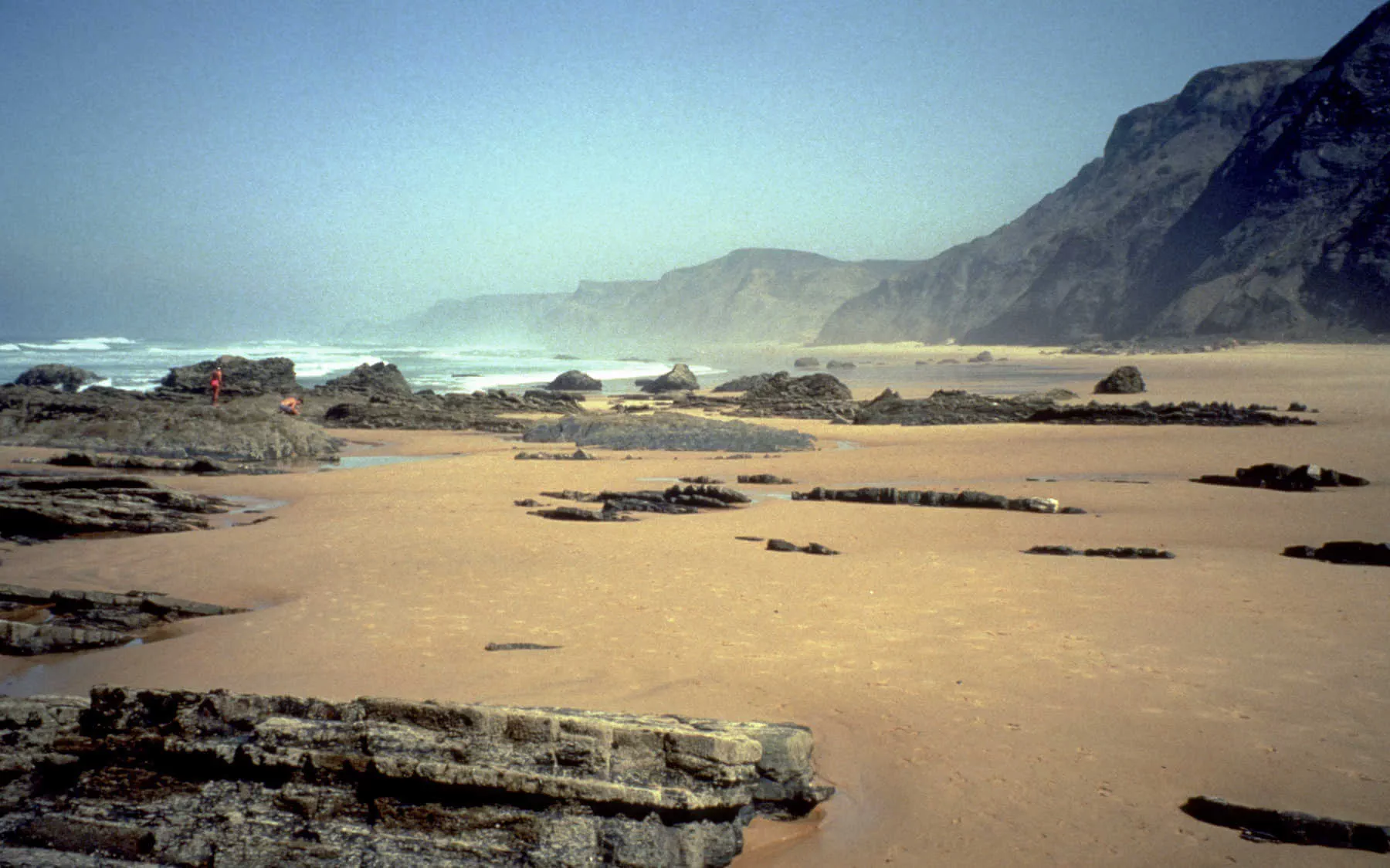Picking up a shiny six-inch anchovy and threatening me with it as if it were a rattlesnake, she says, “This was swimming this morning at 3:00. He will be dinner tonight...maybe for you."
I like beach towns so small that they have no real grocery store...just a mobile market that rolls in every morning. That happens with a particular flair in Salema, a seaside village in the south of Portugal.
Salema has a split personality: The whitewashed old town is for locals, and the other half was built for tourists. Both locals and tourists pursue a policy of peaceful coexistence. Tourists laze in the sun while locals grab the shade. Tourists sleep in while locals rise with the sun.
Salema’s flatbed truck market rolls in weekday mornings: one truck each for fish, fruit, and vegetables, plus a five-and-dime truck for clothing and other odds and ends. On my last visit, the tooting horn of the fish truck woke me at 8:00 with a honky chorus of the 1812 Overture. The bakery trailer, selling delightful fresh bread, rolled in just after that — with less fanfare.
Salema is still a fishing village, but just barely. While the fishermen’s hut no longer hosts a fish auction, you’ll still see the old-timers enjoying the cool early morning hours — when the sand is still wet with dew — before the tourists take the beach. While mending their nets, they reminisce about the old days, when life was “only fish and hunger.”
Local communities seem to live their traditional routines in a parallel existence, oblivious to the tourists who are just another and necessary slice of the local economy.
While churches are "sightseeing attractions" inundated with tourists and their flashing cameras at midday, early in the morning they are more clearly places of worship. From St. Peter's in Rome to St. Paul's in London, I find churches offer a more real welcome first thing in the morning. You might even find yourself actually locked into a worship service.
Stepping into Toledo's vast cathedral before the modesty guards assume their position at the door (to keep out shorts-wearing tourists), I notice that a chapel I've always found closed is not only open...but alive with an ornately robed priest and flickering candles. The Mozarabic Chapel comes to life only in the morning, when it hosts a very special Visigothic Mass — which, with a remarkable Dark Age splendor, claims to be the oldest surviving Christian ritual in Western Europe. As I slip in, the man at the door tells me I'm welcome to enter, but he's about the close the door, so I'll have to stay for the entire Mass. Giving up my freedom, I become a Visigoth for 30 minutes. Toledo's proud Mozarabic community of 1,500 people traces its roots back to Visigothic times, and this service is a lively reminder of the town's dedication to allowing different faiths and cultures to coexist peacefully.
This particular morning, there are so few participants, I find myself helping out...holding a huge, centuries-old Bible while the priest reads. Later, walking out of the Mass, I'm thankful for many things, including the knowledge that among travelers...the early bird gets the memories.
Rick Steves (www.ricksteves.com) writes European travel guidebooks and hosts travel shows on public television and public radio. Email him at
 English
English  Dansk
Dansk  Deutsch
Deutsch  Norsk
Norsk  Svenska
Svenska 


